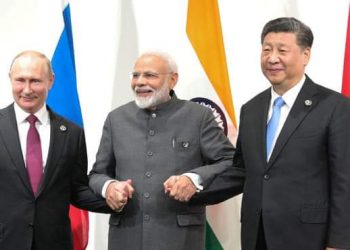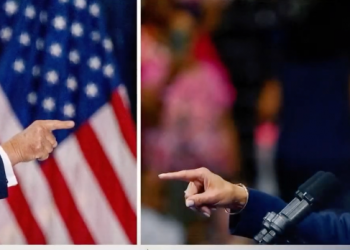





STATEMENT
OF THE PARTICIPANTS OF THE INTERNATIONAL CONFERENCE
“RELIGIONS AGAINST TERRORISM”
(May 31, 2016, Astana)
The International Conference “Religions against Terrorism” brought together religious representatives and parliamentarians from all over the world.
We, the participants, note the growing importance and role of inter-religious dialogue, international cooperation, political and inter-parliamentary diplomacy in ensuring the spiritual and legal foundations of global peace and security, strengthening the unity and effectiveness of universal human principles as well as common religious values and rights, declare the following:
- We strongly condemn terrorism and violent extremism in all their forms and manifestations and consider them to be one of the most dangerous and serious threats to our common religious spirituality, international security and prosperity of humanity.
- We are shocked by the cruel acts of terror in various parts of the world, which have claimed the lives of many innocent people, violated human rights and freedoms, and became a tragedy for whole nations and states.
- With deep sorrow, we witness the suffering of religious communities in certain areas of the world. Hundreds of thousands of civilians have been forced to flee their homes. Terrorists attack reputable religious leaders. Huge damage has been caused to ancient religious sites and shrines.
- We underline the importance of adopting a UN General Assembly resolution banning defamation of religions and their symbols and emphasizing the principles of tolerance, peaceful coexistence and interfaith dialogue.
- We are deeply concerned that international terrorism, under the pretext of religious messages, violates human rights and freedoms, seriously harms humanity’s cultural and spiritual heritage, undermines authority and threatens interreligious harmony.
- We believe that extremist and terrorist ideologies contradict the humane values of religions. We therefore strongly condemn the attempts by terrorists to radicalize religious and doctrinal beliefs which cause irreparable damage to the spiritual unity and mutual enrichment of people and threaten international stability and security.
- Acknowledging that states must take measures to protect everyone within their jurisdiction from terrorist acts, we stress the importance of promoting and protecting human rights and fundamental freedoms in the context of fighting terrorism and countering violent extremism.
- Expressing particular concern that the youth is becoming more vulnerable to extremist ideology, we call on states to redouble their efforts to engage with and empower the younger generation to prevent their radicalization.
- We stress the role of women and families in educating youth in the battle against extremist ideologies.
- We emphasize the importance of good religious education and the need for specialized training of religious leaders in order to effectively confront the spread of terrorist and extremist ideologies.
- We welcome the United Nations Security Council Resolutions 2250 and 1325, which emphasize the importance of the participation of women and youth in decision-making at different political levels.
- We believe that no race, ethnic group, nationality or religion can or should be associated with terrorism and violent extremism.
- We encourage everyone to redouble efforts to bring the true message and values of religions to religious communities and all people to avoid misunderstanding and misinterpretation.
- We are convinced that humanity can fight back against this global threat by strengthening the dialogue and deepening mutual understanding among cultures and religions, as well as through building joint associations to combat terrorism.
- We express our support to all religions, their leaders and other prominent individuals in their noble mission to counter violence and settle conflicts, promote universal values, human rights, respect and understanding between communities.
- In this context we welcome the meeting of Pope Francis of the Roman Catholic Church and Patriarch Kirill of Moscow and all Russia which demonstrated the willingness of religious leaders to set aside all differences and embark on a dialogue in the name of peace. We support the call for the shared global fight against terrorism made by the leaders of the two major Churches. We also acknowledge the significance of the meeting between Pope Francis of the Roman Catholic Church and Supreme imam of Al-Azhar Islamic University Ahmed El-Tayeb with a view to promote dialogue among religious communities.
- We acknowledge the importance of involvement of community leaders and civil society in the fight against terrorism, and believe that, with their participation, governments can achieve better success.
- Taking into consideration the essential role of parliamentarians in the fight against terrorism and violent extremism, we believe that international law and national legislation must become the effective means of countering and preventing terrorism. We note the importance of parliamentarians and their cooperation with religious leaders in passing legislation to promote tolerance.
- We express our shared determination to fight ceaselessly against those who create, finance and arm terrorist organizations for their own interests.
- We emphasize the need for efforts to eliminate the root causes of terrorism, including poverty, hunger, unemployment, instability and conflicts.
- We oppose any attempts to use the media to advocate violence and incite conflict, including on religious grounds. The media must take more responsibility for the manner and content of the topics they report on.
- We express support for the further promotion of the UN Global Counter-Terrorist Strategy and call on states to make every effort to implement it and reach a consensus on the international definition of terrorism.
- We welcome the outcome of the United Nations “Religions for Peace” High Level Dialogue, initiated by Kazakhstan and held on May 6, 2016, in New York under the auspices of the President of the 70th UN General Assembly, which was aimed at the implementation of the Plan of Action on Preventing Violent Extremism.
- We welcome the initiative of the President of the Republic of Kazakhstan, Nursultan Nazarbayev, to establish a Global Anti-terrorist coalition (network) under the auspices of the United Nations and to adopt a UN comprehensive document on countering terrorism, in accordance with the provisions of the Global Counter-Terrorist Strategy and the UN Security Council resolutions.
- We urge the international community to support President of Kazakhstan Nursultan Nazarbayev’s Manifesto “The World. The 21st Century”, which proposes a global strategy of concerted and responsible actions by countries to eliminate the virus of wars and conflicts.
- We express particular concern regarding the threat of nuclear terrorism. We call on the international community to follow the example of Kazakhstan, which renounced the fourth largest nuclear arsenal and closed the Semipalatinsk Nuclear Test Site 25 years ago, which set an example in building a secure future for the whole planet.
- We note the special role of the Congress of the Leaders of World and Traditional Religions, which has become an effective platform for global inter-religious dialogue.
- We urge the whole international community to join efforts to counter terrorism and underline the need to continue the constructive dialogue among parliamentarians and religious leaders.



















